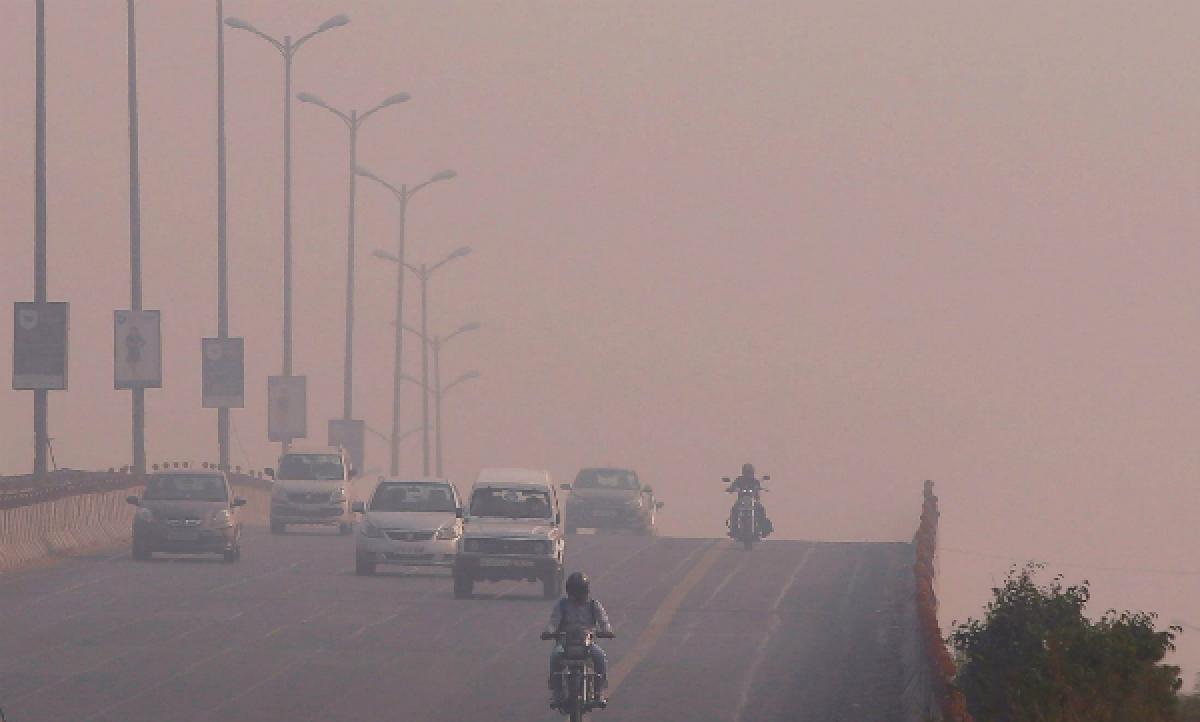Live
- ‘Get Set, Grow Summit 2024’ Focuses on Digital Detox for Families
- Stokes motivates his team to put in extra effort, says England pacer Potts
- From overcoming setbacks to leading India in U19 Women’s Asia Cup, Niki Prasad's amazing journey
- Driving Enterprise Security: Inside Venkata Reddy Thummala’s Leadership Journey
- Constitution debate: PM Modi hails 'Nari Shakti'; makes strong pitch for 'United Bharat’
- Abhijeet Bhardwaj: Revolutionizing Enterprise Analytics with Innovation and Expertise
- Bihar: Inquiry initiated against principal who went to buy veggies during school hours
- Press Sri Lankan Prez for release of Indian fishermen: TN Cong MP to EAM Jaishankar
- TN: DMK postpones executive meet due to heavy rains & Parliament session
- Porous silicon oxide electrodes can fix durability issues in batteries: Researchers
Just In

As New Delhi grappled with its worst smog in 17 years, the head of India\'s largest mobile payment firm got on a plane and left, one of thousands of professionals escaping pollution that could cost the capital and the broader economy dear. Vijay Shekhar Sharma, founder of Paytm payment start-up, left last Sunday for a temporary stay in Mumbai, worried about the impact of hazardous clouds of dust,
NEW DELHI:As New Delhi grappled with its worst smog in 17 years, the head of India's largest mobile payment firm got on a plane and left, one of thousands of professionals escaping pollution that could cost the capital and the broader economy dear.
Vijay Shekhar Sharma, founder of Paytm payment start-up, left last Sunday for a temporary stay in Mumbai, worried about the impact of hazardous clouds of dust, smoke and fumes that hang over Delhi during the winter months.
"It became very visibly clear that it is going to be tough in Delhi, especially with young kids," Mr Sharma said in Mumbai.
His company, which has considered moving from its base outside Delhi, has installed air purifiers, brought in plants and masks and offered extra health assistance.
Telecoms operator Idea Cellular and others have allowed more employees to work at home, and hired buses so that car traffic is reduced - all at their own expense.
A few companies are thriving from the heavy smog hanging over the city earlier this month - providers of face masks and air purifiers have seen sales soar.
But others, like the car manufacturers, are in the firing line of local and national politicians who want to reduce the deadly haze, while estate agents and tour operators have complained of a slowdown in business.
Delhi, home to around 17 million people, is among the fastest growing states in India. Its $84 billion economy has been expanding at more than 8 percent for the past two years, faster than a 7.4 per cent national average.
Its air quality, meanwhile, has deteriorated, even by the standards of a country with some of the world's most polluted cities. Conditions have improved this week, but the problem is perennial and has been particularly acute this winter.
Jones Lang LaSalle (JLL), a global real estate services firm serving large corporates, said some clients were reconsidering Delhi as a base, as costs of working there rise.
"This is increasing their operational costs as they are being made to spend more to provide a healthy workplace to their employees," said Santosh Kumar, a senior executive at the firm.
Delhi's image is deteriorating more widely, a headache for tour promoters and a government touting "Brand India".
Some local tour operators say they are already receiving requests from overseas partners to redraw the itinerary of foreign tourists to avoid even an overnight stay in Delhi. Business travellers say they are cancelling trips.
Companies have yet to tot up the cost of a week of coughing, spluttering and watering eyes, but local industry lobby group Assocham estimates "several billions of dollars" of new investments are under threat.
A study by the World Bank shows Asia's third-largest economy lost 8.5 per cent of its GDP in 2013 due to air pollution.
The Delhi government has taken steps to reduce traffic amid widespread public anger at pollution that has caused choking, wheezing and breathlessness.
Licences are being withdrawn for diesel-powered vehicles older than 15 years, and authorities are considering resuming an "odd-even" scheme, under which cars can only travel in the city on alternate days depending on their registration number.
But not everyone is complaining about the smog.
Japan's Daikin has seen sales of air purifiers increase by up to three times since Diwali, and its stock that had been expected to last until March is exhausted.
To meet growing orders, the Osaka-based air-conditioner maker increased shipments from its Thai factory by 50 per cent.

© 2024 Hyderabad Media House Limited/The Hans India. All rights reserved. Powered by hocalwire.com







